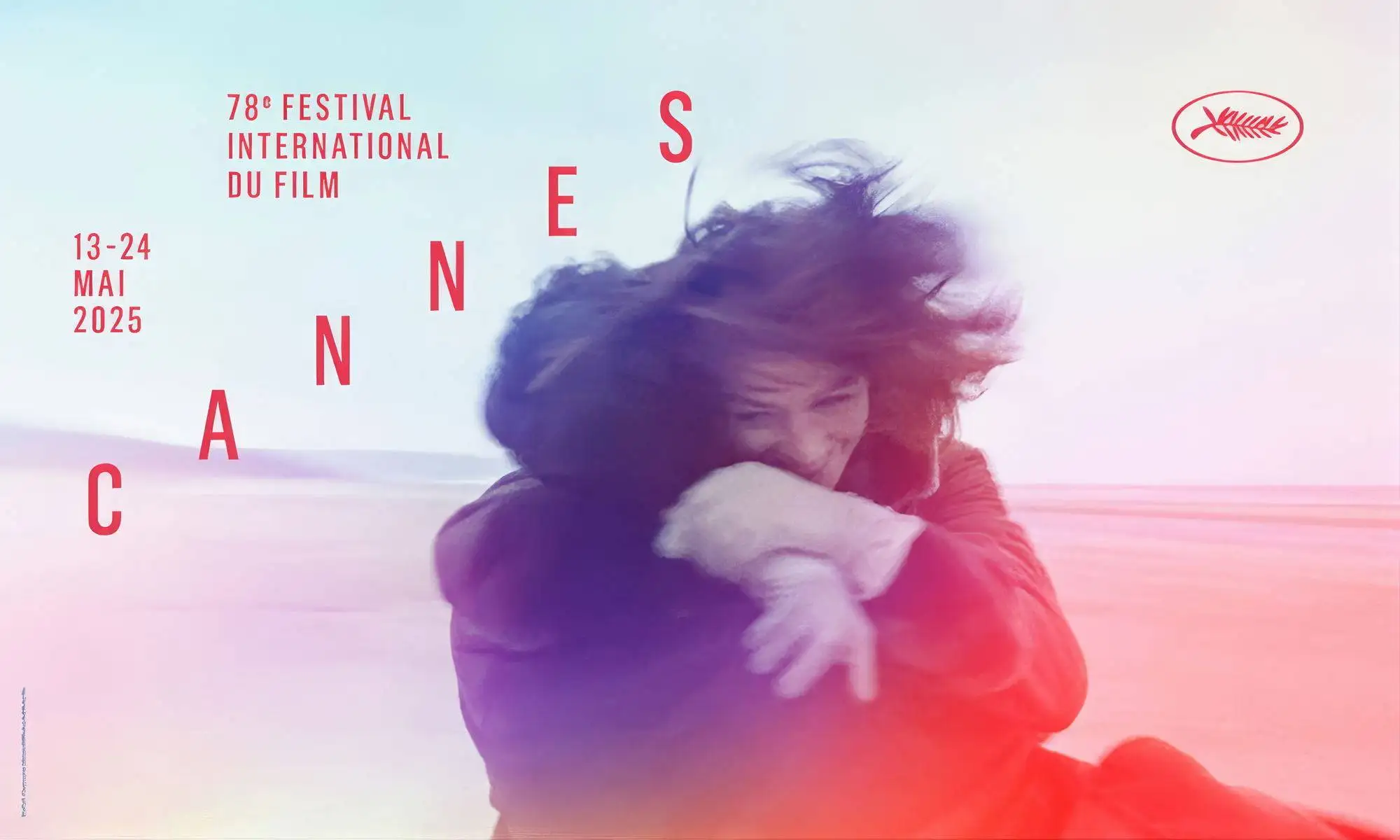The Top 10 Films Playing at Cannes 2025
The Cannes Film Festival always brings a packed lineup, but Cannes 2025 feels especially stacked. I’ve gone back and forth on this list more times than I care to admit, but what follows is a selection of the ten titles I’m most looking forward to this year. I’ve also added a few honourable mentions—films that might not have made the cut, but still offer plenty to be excited about.
Whether you’re attending in person or following from afar, here are the films generating early momentum. | Cannes 2025
Full Cannes 2025 Film List Here
10. Eddington
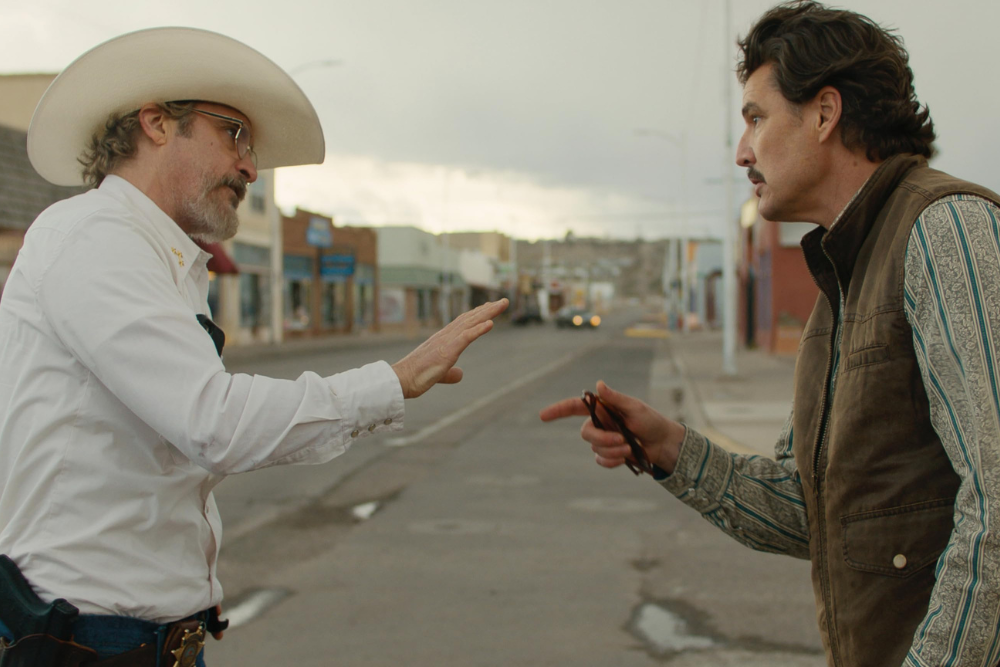
Director:
Ari Aster
Cast:
Joaquin Phoenix, Pedro Pascal, Emma Stone, Austin Butler, Micheal Ward, Luke Grimes
Synopsis:
A pandemic-era political Western set in a fictional New Mexico town in 2020, Eddington pits an old-school sheriff against a rising-star mayor as their feud over COVID safety mandates ignites a volatile standoff. What begins as a civic dispute morphs into a moral warzone.
Eddington Trailer:
Why Eddington Is Worth a Watch:
We’re getting a quick follow-up from Ari Aster and Joaquin Phoenix, only two years after Beau Is Afraid – a film I still think was overlooked at the time. Eddington uses an early-COVID small-town Western as its frame, but the genre feels more like a cover for Aster’s ongoing interest in fear, power, and how communities fracture under stress. Darius Khondji (Se7en, Uncut Gems, Bardo) handles the visuals, which should make the contrast between open desert and cramped interiors feel intentional rather than showy. The cast is deep – Pedro Pascal, Emma Stone, Austin Butler, and others – so the town’s dispute has plenty of perspectives to work with. And, as an A24 release, you can expect careful pacing, strong craft, and a willingness to stay with the uneasy moments.
9. Eleanor the Great
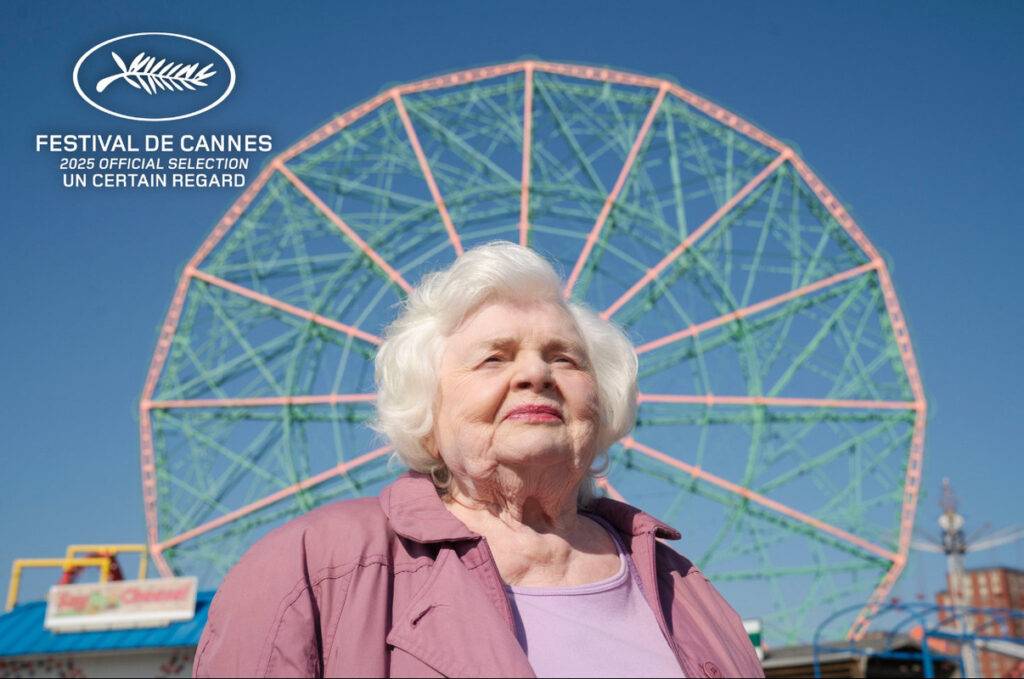
Director:
Scarlett Johansson
Cast:
June Squibb, Chiwetel Ejiofor, Erin Kellyman, Jessica Hecht, Rita Zohar
Synopsis:
Following the death of her best friend, 94-year-old Eleanor Morgenstein leaves her small hometown behind to reinvent herself in New York City. There, she begins spinning tales about her life that grow into something much larger — and riskier — than she imagined.
Eleanor the Great Clip:
Why Eleanor the Great Is Worth a Watch:
Scarlett Johansson steps behind the camera for the first time with Eleanor the Great. Working from Tory Kamen’s script, she centres ninety-five-year-old June Squibb—still drawing attention after Thelma—as a recent widow who swaps small-town routine for an apartment in New York and an unexpected friendship with a nineteen-year-old student. Johansson pairs the story with cinematographer Hélène Louvart, whose work on La chimera, The Lost Daughter, and Never Rarely Sometimes Always is known for restrained handheld framing and natural light. That same subtle approach shapes the film’s look: less postcard Manhattan, more everyday corridors. And this emphasis on authenticity runs deeper than location; the support-group scenes feature real Holocaust survivors, grounding the film’s reflection on loss, memory, and Jewish identity in lived experience.
8. Alpha
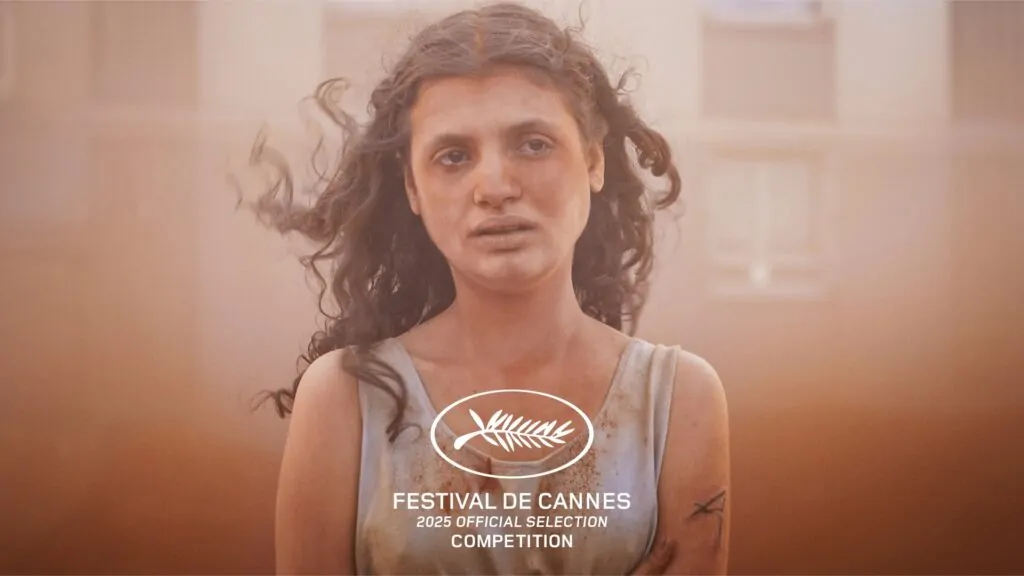
Director:
Julia Ducournau
Cast:
Mélissa Boros, Golshifteh Farahani, Tahar Rahim
Synopsis:
Set during the height of the AIDS crisis in a fictional late-1980s city, Alpha follows a 13-year-old girl whose rebellious act — getting a tattoo — coincides with the spread of a mysterious new illness. Ostracized by her peers and doubted by her mother, Alpha begins to forge her identity amid fear, grief, and transformation.
Why Alpha Is Worth a Watch:
Julia Ducournau’s third feature, Alpha, returns to the late-1980s—a moment shaped by public panic around AIDS—and follows a 13-year-old who comes home with a new tattoo just as an unexplained illness starts moving through her neighbourhood. Ducournau stays with her regular collaborators, DP Ruben Impens and editor Jean-Christophe Bouzy, whose work on Raw and Titane balanced grounded domestic spaces with abrupt shifts into body-horror. Early notes suggest Alpha keeps that mix: everyday family life steadily giving way to images of physical change that echo the era’s medical uncertainty. Distribution again comes from NEON, a company on a notable Cannes run, and while plot details are limited, Ducournau has framed the film as a look at adolescence, contagion, and the thin line between self-expression and social fear. If her earlier work is any guide, expect a film that is confident in its visual ideas and comfortable sparking debate.
7. The Mastermind
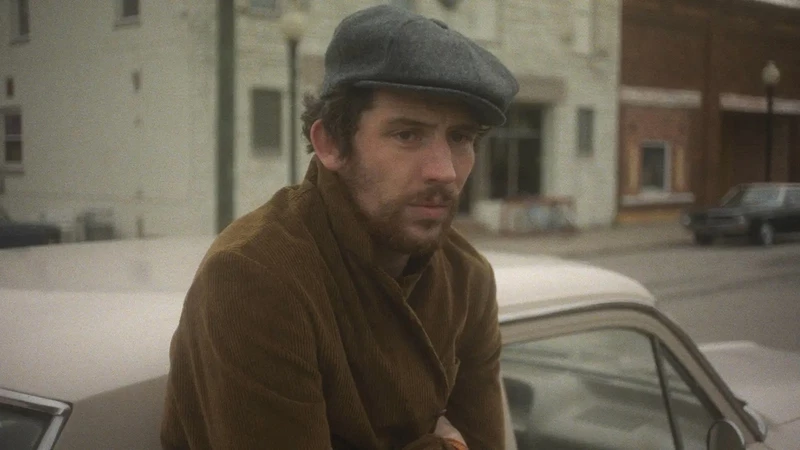
Director:
Kelly Reichardt
Cast:
Josh O’Connor, John Magaro, Alana Haim, Gaby Hoffmann
Synopsis:
A quiet bookkeeper in a small Oregon town is drawn into an amateur heist scheme when a charming drifter enters her life — and gradually entangles her in a plot to rob the credit union where she works.
Why The Mastermind Is Worth a Watch:
Kelly Reichardt’s The Mastermind is being described as a heist film, but based on her previous work, it’s likely to treat that premise with restraint. The story centres on Josh O’Connor as a carpenter who becomes involved in a small-scale art theft, with Gaby Hoffmann, John Magaro, and Hope Davis rounding out the cast. Christopher Blauvelt—who has shot all of Reichardt’s films since Meek’s Cutoff—returns as cinematographer, and early reports indicate it was shot on 16mm, suggesting a continued interest in natural light and static, observational framing. While we don’t know much about the structure, it seems safe to assume this won’t follow the rhythms of a typical crime film. Instead, The Mastermind may use its premise as a way to explore quiet pressures—financial, emotional, social—and what pushes someone to take a risk they wouldn’t have considered before.
6. The Young Mothers’ Home
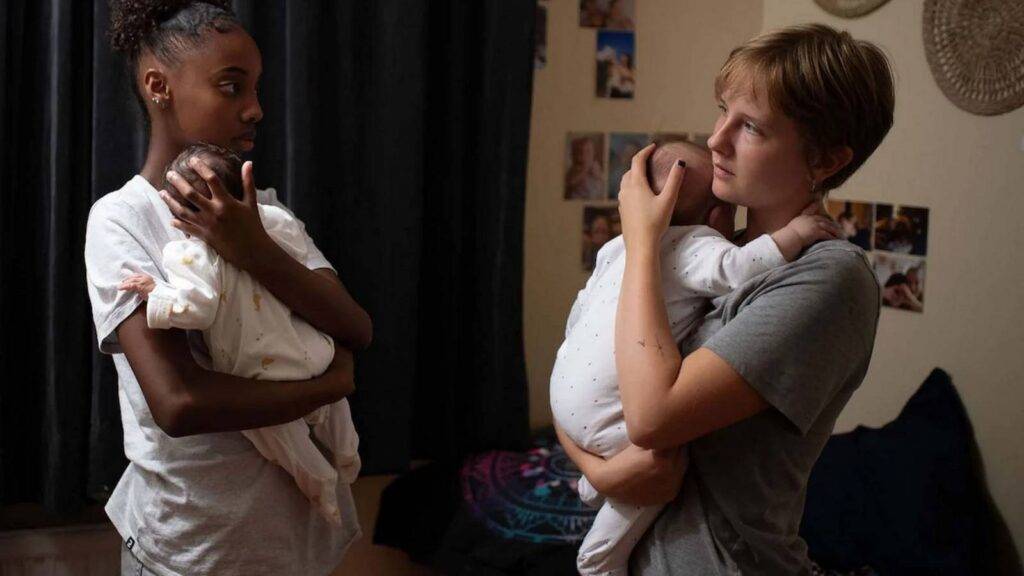
Directors:
Jean-Pierre and Luc Dardenne
Cast:
Non-professional ensemble
Synopsis:
In a Belgian care centre for young single mothers, five women try to secure housing, work, and stability while navigating the traumas of addiction, violence, and institutional neglect.
Why The Young Mothers’ Home Is Worth a Watch:
Jean-Pierre and Luc Dardenne return to Cannes with The Young Mothers’ Home, a project that follows five women navigating life inside a residential care centre for single parents. As usual, they’ve cast mostly non-professional actors, and the film was reportedly shot handheld on 16mm without a musical score—consistent with their interest in realism and quiet observation. The story focuses on day-to-day efforts to secure housing and employment, while also dealing with past trauma. While little has been revealed beyond the premise, early descriptions suggest a personal film that stays focused on systemic barriers rather than dramatic plot shifts. If it connects, it could position the Dardennes as the only filmmakers to win the Palme d’Or three times.
5. The History of Sound
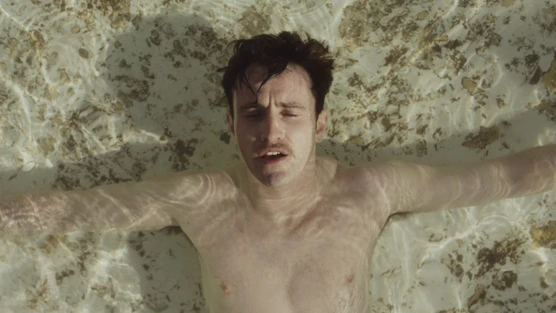
Director:
Oliver Hermanus
Cast:
Paul Mescal, Josh O’Connor, Michael Ward
Synopsis:
Set in the U.S. during World War I, the story follows two young men, Lionel and David, as they travel through rural New England recording American folk songs for the government — a journey that gradually becomes one of intimacy and self-discovery.
Why The History of Sound Is Worth a Watch:
The History of Sound is set in 1916 and follows two young men—played by Paul Mescal and Josh O’Connor—as they travel the U.S. collecting folk songs on behalf of the government. Directed by Oliver Hermanus and shot by Jamie Ramsay, the team behind Living, the film looks positioned more as a study of memory and intimacy than a typical war-time drama. The music recordings are central to the plot, but they also seem to serve as a way of tracing something quieter—a relationship built in fragments, over time, and across a landscape that keeps changing.
4. The Phoenician Scheme
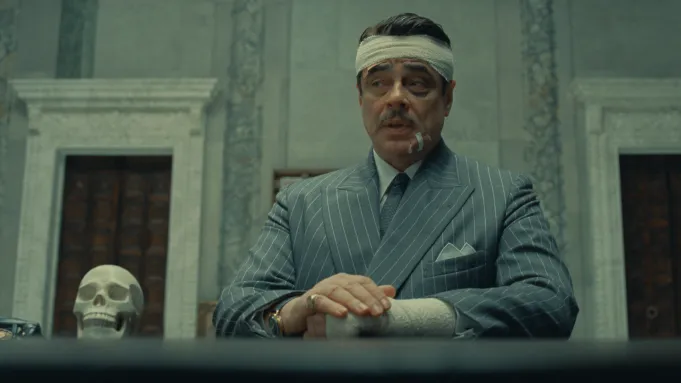
Director:
Wes Anderson
Cast:
Benicio del Toro, Michael Cera, Riz Ahmed, Scarlett Johansson, Tom Hanks, Bryan Cranston, Benedict Cumberbatch
Synopsis:
Zsa-zsa, an eccentric horticulturalist and part-time insurance fraud investigator, finds himself caught up in a metaphysical mystery that spans dimensions — and shoeboxes. The story unfolds across five chapters, each one more surreal than the last.
The Phoenician Scheme Trailer:
Why The Phoenician Scheme Is Worth a Watch:
In The Phoenician Scheme, Wes Anderson leans into a five-part narrative structure, with each section unfolding from what the film reportedly calls a “shoebox”—a literal object, but also a storytelling framework. From there, it moves between worlds: moments of death, imagined afterlives, and alternate timelines all feature in some way. Stylistically, it’s very much Anderson’s territory, but early notes suggest this one might be more abstract or speculative than his recent work. The cast is sprawling, and the amount of world-building appears extensive—I mean, the press kit includes a recommended reading list, with references to Renaissance art, engineering manuals, and botanical archives.
3. Sentimental Value
Director:
Joachim Trier
Cast:
Renate Reinsve, Stellan Skarsgård, Elle Fanning, Inga Ibsdotter Lilleaas
Synopsis:
Two estranged sisters reconnect with their once-famous filmmaker father when he invites one of them to star in his comeback movie — only to cast a Hollywood actress in the role instead.
Why Sentimental Value Is Worth a Watch:
In Sentimental Value, Joachim Trier brings Renate Reinsve back into the fold, this time as a daughter navigating the fallout of being fictionalized by her estranged filmmaker father. Based on early descriptions, the film blends family dynamics with meta-cinema, using the process of filmmaking as a way to explore creative control and emotional distance. Trier co-wrote the script with longtime collaborator Eskil Vogt, and while the premise involves casting and film production, the focus seems to stay personal. Elle Fanning joins the cast as the actor brought in to play the daughter, creating an off-kilter triangle of memory, performance, and artistic legacy.
2. It Was Just an Accident
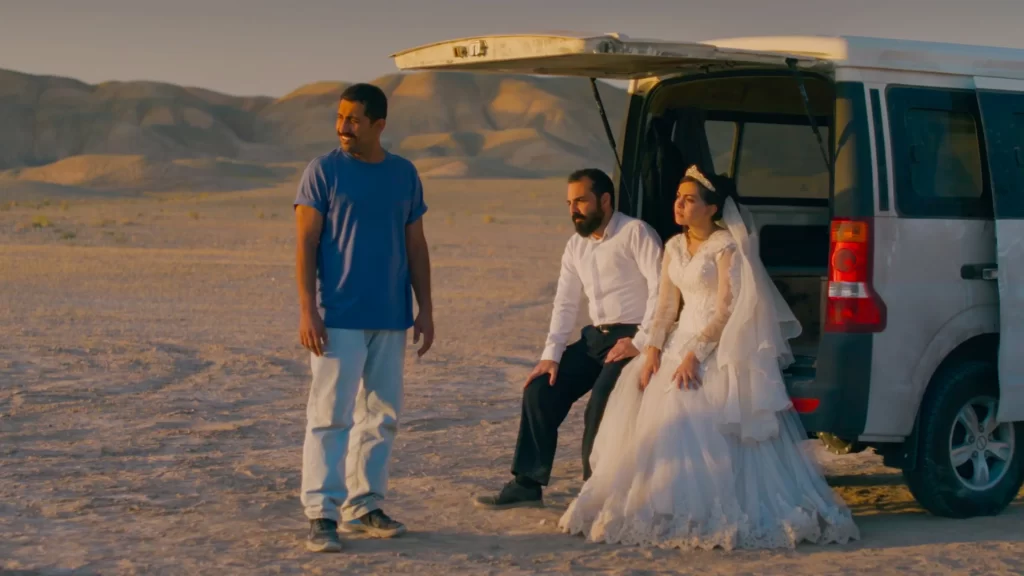
Director:
Jafar Panahi
Cast:
Vahid Mobasseri, Mariam Afshari, Hadis Pakbaten
Synopsis:
After a minor bump on a rural road, a family man chooses not to stop — only to discover later that someone may have been injured. What begins as a moment of moral weakness spirals into a tense web of guilt, suspicion, and consequence.
Why It Was Just an Accident Is Worth a Watch:
Jafar Panahi returns with It Was Just an Accident, a film that, like many of his recent works, was made without government approval. Details are limited, but the premise—a seemingly minor accident that triggers a chain of consequences—suggests an allegorical approach. Panahi has long used constrained narratives to explore broader ideas around repression and state control, and this appears to follow that same path. The production was carried out covertly, reportedly under conditions of continued surveillance, and its selection for Cannes reinforces how his work continues to challenge official boundaries through form as much as content.
1. Nouvelle Vague
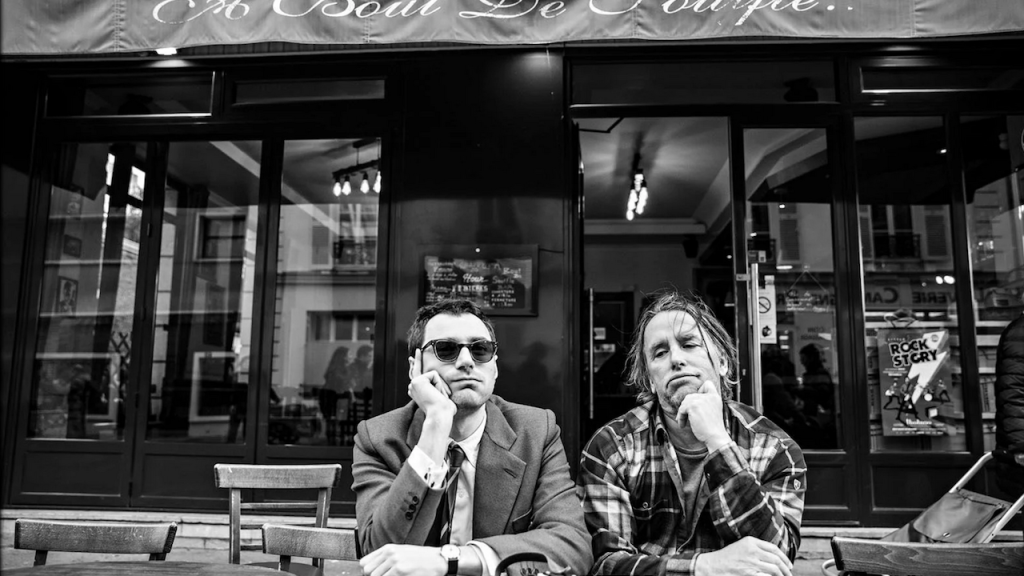
Director:
Richard Linklater
Cast:
Guillaume Marbeck, Zoey Deutch, Aubry Dullin, Matthieu Penchinat
Synopsis:
Set in 1959 Paris, the film follows Jean-Luc Godard as he scrambles to make Breathless — filming on the fly, rewriting daily, and practically inventing the French New Wave as he goes.
Why Nouvelle Vague Is Worth a Watch:
Richard Linklater’s Nouvelle Vague isn’t just a film about Breathless—it’s a film that adopts the texture and rhythm of the movement it’s depicting. Entirely in French and shot largely on 16mm, it follows the making of Breathless through a mix of scripted scenes, archival nods, and fourth-wall breaks. Characters like Godard and Truffaut appear throughout, but the tone seems more reflective than reverent. While the narrative focus is tight, the structure sounds loose by design, echoing the early ethos of experimentation and rule-breaking that defined the New Wave. | Cannes 2025
Honourable Mentions
- The Chronology of Water — Kristen Stewart’s directorial debut adapts Lidia Yuknavitch’s memoir on self-discovery through swimming, sexuality, and writing.
- Die, My Love — Lynne Ramsay’s thriller about postpartum psychosis, starring Jennifer Lawrence and Robert Pattinson.
- Highest 2 Lowest — Spike Lee reimagines Kurosawa’s High and Low as a neo-noir kidnapping thriller in NYC, with Denzel Washington, A$AP Rocky, and Ice Spice.
- Honey Don’t! — Ethan Coen’s “lesbian B-movie” detective comedy, featuring Margaret Qualley and Aubrey Plaza.
- Orwell: 2+2=5 — Raoul Peck’s documentary on George Orwell’s legacy and the ongoing battle over truth.
- Urchin — Harris Dickinson’s minimalist debut about a young homeless man navigating London’s fringes.
Read More:

